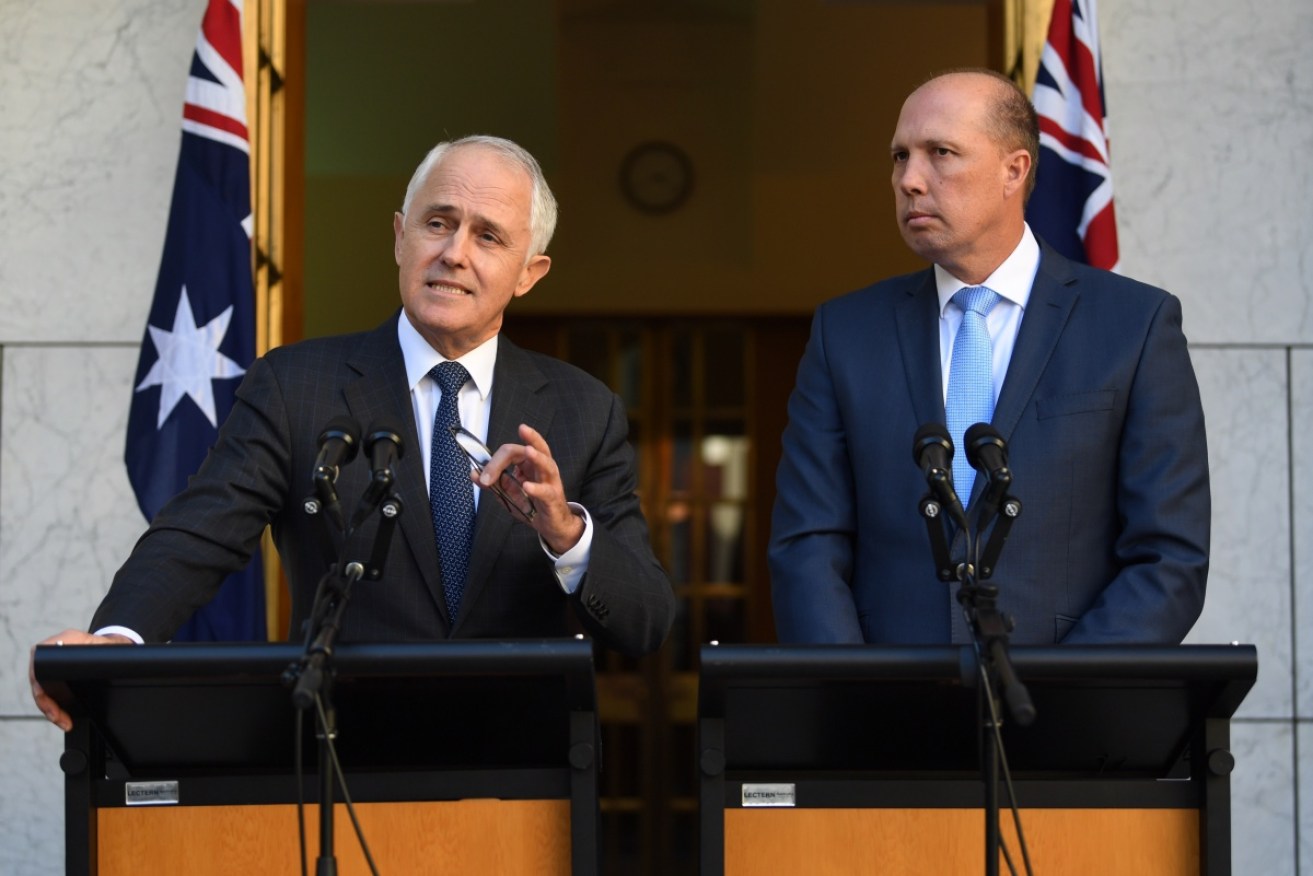Government’s 457 visa crackdown ‘misses the core problem’

Prime Minister Malcolm Turnbull and Immigration Minister Peter Dutton unveiled the changes in July. Photo: AAP Photo: AAP
The Turnbull government’s crackdown on temporary migrants taking Australian jobs has missed the mark by failing to take labour market testing out of the hands of employers, a legal expert has warned.
Prime Minister Malcolm Turnbull, flanked by Immigration Minister Peter Dutton, announced on Tuesday that the 457 visa class had “lost its credibility” and would be wholly replaced by two new temporary skills visas, beginning April 19.
“The 457 visa is abolished. It will be replaced by a new system that will be manifestly, rigorously, resolutely conducted in the national interest to put Australians and Australian jobs first,” Mr Turnbull said.
In response to the announcement, Labor said it was “concerned that Mr Turnbull is just rebadging the same visa system with the same dodgy loopholes”.
“We’ve been pushing for changes to the working visa system for a long time – both before the last election and in the parliament,” the party said in a statement.
Dr Joanna Howe, a legal academic at The University of Adelaide who last year pointed out gaping holes in the 457 scheme, told The New Daily the new system will fail to solve the “core problem” of employers failing to properly offer jobs to Australians before they recruit from overseas.
According to the government, a new two-year visa will require two years of prior work experience, be available for 268 occupations (down from 651), will require labour market testing, and won’t be convertible to a permanent residence.
Employers will be able to renew this short-term visa once, for another two years, but further extensions would require the worker to leave Australia and reapply.

Dr Joanna Howe says the new visa classes have some big loopholes.
The government will also create a new four-year visa, which will be available for 167 occupations (down from 651), have a harder English test, and require a police check and mandatory labour market testing. Unlike the two-year version, it can be converted to a permanent residency after three years.
“The reforms are a step in the right direction, but a key concern I have is that the government is going to stick with the model of employer-conducted labour market testing,” Dr Howe said.
During the press conference, both Mr Turnbull and Mr Dutton said the changes were a response to a 2014 review chaired by John Azarias.
This was “somewhat hypocritical” because independent labour market testing was the “core recommendation” of this review, Dr Howe said.
“Research, the government’s own independent review and the experience of countries abroad like the UK and Austria is that employers conducting labour market testing doesn’t work. If unscrupulous employers want to hire temporary migrant workers for an ulterior motive, they can.”
As Dr Howe pointed out last year, the current market testing rules are so lax, an employer need only post a job ad on their personal Facebook page to meet the requirements. Even with tougher rules, leaving the testing in employers’ hands is a mistake, she said.
“I am concerned that the rhetoric of ‘Australian jobs first’ is not matched by the policy detail in this announcement.”

Dr Howe said the changes were a positive development in light of the youth unemployment crisis, but warned that Mr Turnbull and Mr Dutton’s nod to “regional areas” raised the prospect that foreigners would continue to take jobs in country towns, where the crisis is at its worst.
The shorter occupations list was also welcome, but she cautioned that “we need to see what occupations are on the list”.
Maritime Union of Australia president Chris Cain, whose industry fears an influx of foreign oil rig and coastal shipping workers, said the crackdown “does not go far enough” because of the free trade agreement loophole.
The government noted in its announcement that tougher labour market tests will apply “unless an international obligation applies”.
An example is Chapter 10 of the China-Australia Free Trade Agreement, which limits the ability of either nation to impose numerical limits and labour market testing on temporary migrant visas.
Mr Cain called for temporary migration to Australia to “cease completely” and all free trade agreements to be reviewed.
“To me, they should really be looking at those trade deals and making sure that Australians will get their chance to work in their own country, and that Australian kids will be trained up.”








